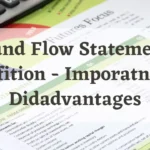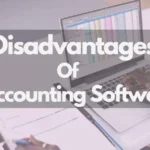The new government accounting system emphasizes that government transactions have to take place only through banks. In other words, all receipts and payments have to be made only by bank cheques. since banks are ordinarily not bound to pay cheques drawn for less than Rs. 100, it is, however, not worthwhile to draw cheques of small amounts to meet petty expenses.

In a government office, petty expenses like refreshments, newspapers, stamps, conveyance, collie charges, etc. are paid frequently for which cheques cannot be drawn. To pay such small amounts of expenses, a fund is created by the office, which is known as petty cash fund, and the book in which petty expenses are recorded is called petty cash book.
Definition of Petty Cash Fund
Petty cash fund is an amount kept by the government offices for meeting petty expenses, as cheques for small amounts are not generally drawn for the purpose.
Thus, all the petty expenses are paid through this fund. The petty cash fund is also known as float, which means a fixed amount meant for meeting the petty expenses. The government accounting system has provided for creating petty cash funds under the imprest system under the charge of a petty cashier. The petty expenses met through the petty cash fund are reimbursed periodically. The petty cashier is paid back the amount equal to petty expenses made in the previous period.
Read About: External Recruitment and Fund Flow Statement
All the petty expenses incurred are recorded in form coded A.G.F No.22, which is called petty cash book or petty cash fund account. Thus, a petty cash book may be defined as a multi-column self-balancing form prescribed by the office of the Auditor-General and coded A.G.F No. 22, meant for recording all petty expenses incurred and met by the petty cash fund maintained by the government office. The petty cashier who is the charge of the petty cash fund maintains the petty cash book of every petty cash expenses met through the petty cash fund.
Read Important : Subsidiary Book Importance




